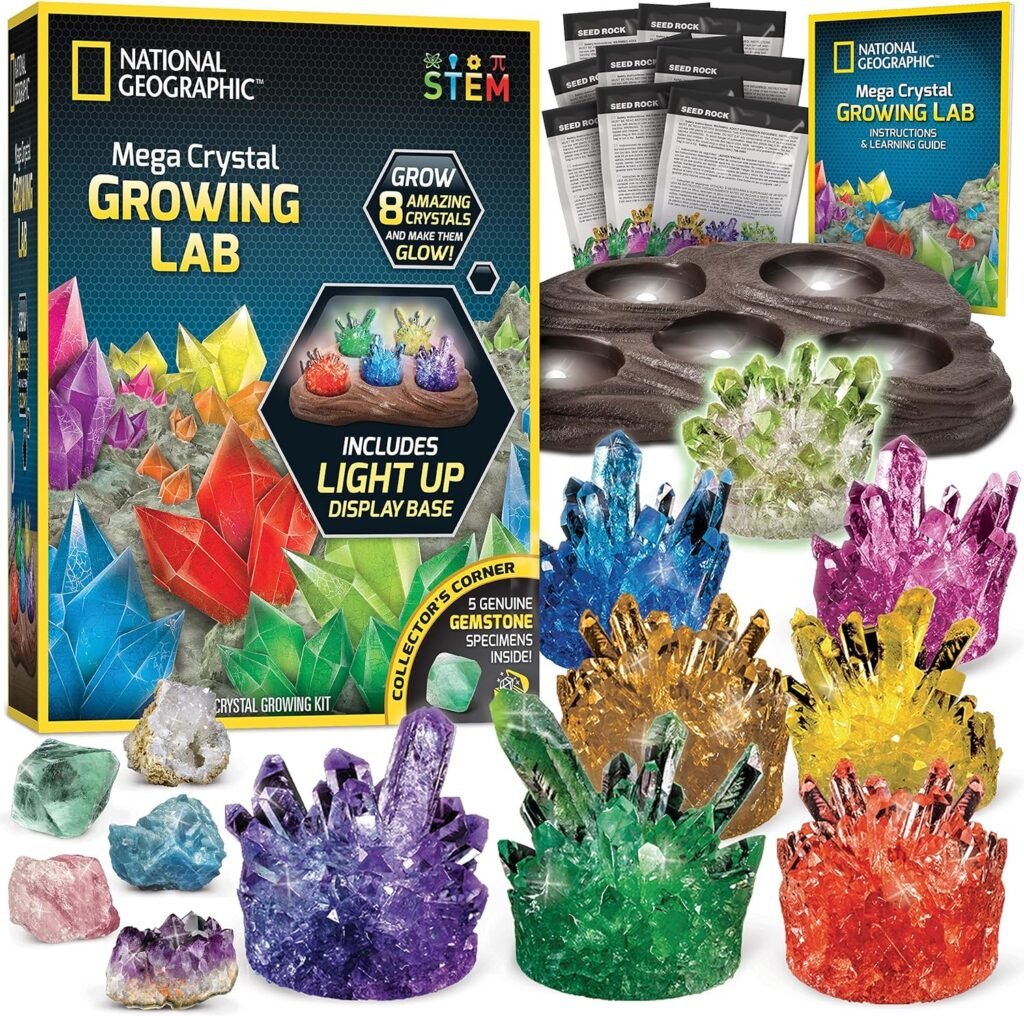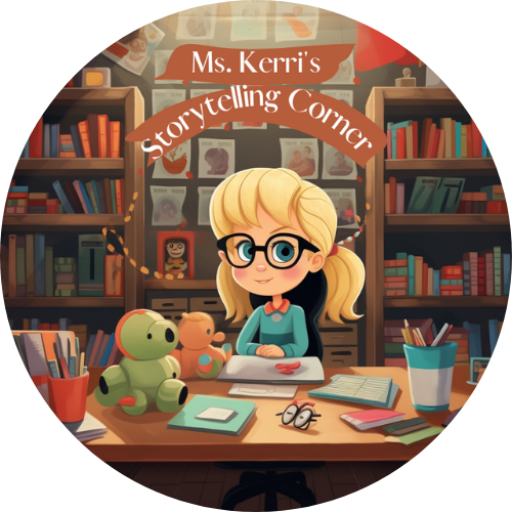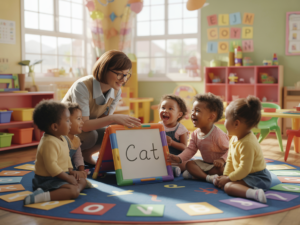Finding fun and free children’s worksheets for preschool learning can make a world of difference for little learners. These worksheets not only help kids grasp essential skills but also keep them engaged and excited about learning. From math to art, there are countless resources available that can be easily accessed and used at home. Let’s explore some great options that can support your child’s education while making learning enjoyable!
Key Takeaways
- Free children’s worksheets are a great way to support preschool learning.
- Thematic worksheets capture children’s interest and encourage participation.
- Creative activities like coloring and puzzles enhance learning while having fun.
- Worksheets can help develop essential skills like sorting, tracing, and counting.
- Incorporating worksheets into daily routines makes learning consistent and enjoyable.
Engaging Free Children’s Worksheets for Learning
Thematic Preschool Worksheets for Everyone
Choosing the right theme is super important for keeping kids interested. If you pick a worksheet about something they already love, it’s way easier to get them focused and excited about learning. These worksheets are great for grabbing their attention and helping them concentrate. Some activities, like counting or practicing handwriting, need kids to sit still for a bit. But if they’re doing something fun, it’s much easier for them to stay put. Interesting and fun learning is the best way to teach – just make sure it’s a topic they’re into. You can find the right printable activities for kids by topic, category, or age.
Fine Motor Skills and Pre-Writing Activities

Developing fine motor skills is a big deal in early learning. Practicing with colorful and fun worksheets can make learning a regular habit because it’s enjoyable. You can pick an activity that works best for your child. Here are some options:
- Sorting objects worksheets
- Matching worksheets for toddlers or preschool
- Tracing worksheets
- Color worksheets
- Cutting practice worksheets
Math Activities for Young Learners
Around 2-3 years old, kids start learning about numbers and counting. They can also start to tell different shapes apart and solve simple math problems. Math activities can really help them get ready for school. Here are a couple of tips:
- Show them how math is used in real life. Point out things you can count when you’re shopping, cooking, or even just telling time.
- Let them play and explore with things they like, such as toys or candies. This makes learning more fun and relatable.
- Use games and puzzles to make learning math feel like playtime. This keeps them engaged and helps them understand concepts better.
It’s amazing to see kids light up when they start to understand new things. Preschool worksheets can be a great way to give them a head start and help them succeed later on.
Creative Activities to Enhance Learning
Let’s move beyond the basics and explore some seriously fun ways to get those little minds working! We’re talking about activities that spark imagination and make learning feel like playtime. It’s all about getting hands-on and letting kids express themselves.
Coloring and Art Worksheets
Coloring isn’t just about staying inside the lines; it’s a fantastic way to develop fine motor skills and unleash creativity. Art worksheets can introduce kids to different mediums, like painting, drawing, and even collage. Think beyond crayons and markers – try watercolors, finger paints, or even natural materials like leaves and twigs. You can find free worksheets online that incorporate coloring into learning shapes, colors, and even simple math concepts.
Cut and Paste Fun
Cutting and pasting activities are awesome for developing hand-eye coordination and spatial reasoning. Plus, kids love them! You can find worksheets that involve creating pictures, completing patterns, or even building simple 3D objects. Make sure to use safety scissors and supervise younger children. Consider using themed cut and paste activities to reinforce learning about animals, seasons, or holidays. It’s a great way to make learning interactive and engaging. These activities also help with problem-solving skills.
Interactive Games and Puzzles
Who says learning can’t be a game? Interactive games and puzzles are a super way to sneak in some education without kids even realizing they’re learning. Think matching games, simple jigsaw puzzles, and even online games that focus on early math and literacy skills.
Puzzles are great for critical thinking, and games can teach valuable social skills like taking turns and following rules. Plus, there are tons of free printable games and puzzles available online, making it easy to find something that suits your child’s interests and skill level. You can even create your own simple games using household items. For example, create your own matching games at home.
Here are some ideas for interactive games:
- Matching Games: Print out pairs of pictures and have your child match them up.
- Simple Jigsaw Puzzles: Cut up a picture into a few large pieces and have your child put it back together.
- Online Educational Games: Many websites offer free games that teach basic skills like counting, letter recognition, and shape identification.
Essential Skills Development Through Worksheets

ALT Children engaging with colorful worksheets in a bright classroom.
Sorting and Matching Activities
Sorting and matching activities are great for kids. They help develop cognitive skills and teach children how to identify similarities and differences. You can use worksheets that involve sorting objects by color, shape, or size. Matching activities can include pairing animals with their homes or identifying objects that belong together. These activities are not only educational but also fun and engaging for young learners. My little one loves to sort her toys, and it’s amazing to see her learn while she plays. It’s a win-win!
Tracing and Writing Practice
Tracing and writing practice is key to developing fine motor skills and pre-writing abilities. Worksheets that offer tracing exercises help children improve their hand-eye coordination and pencil control. These can start with simple lines and shapes and progress to letters and numbers. Writing practice can involve copying words or completing sentences. These activities prepare children for formal writing and reading. You can find pencil control worksheets online to help with this.
Counting and Number Recognition
Counting and number recognition are important early math skills. Worksheets that focus on counting objects, identifying numbers, and understanding basic math concepts can be very helpful. These can include activities like counting pictures, matching numbers to quantities, or solving simple addition and subtraction problems. It’s a good idea to use real-life examples to make it more relatable. For instance, counting snacks or toys can make learning more engaging.
Using worksheets for counting and number recognition can make learning math fun and less intimidating for young children. It provides a structured way to introduce these concepts and build a solid foundation for future math skills.
Here’s a simple example of how you can track your child’s progress:
| Activity | Day 1 | Day 2 | Day 3 |
|---|---|---|---|
| Counting Objects | 5/10 | 8/10 | 10/10 |
| Number Matching | 3/5 | 4/5 | 5/5 |
| Simple Addition | 2/3 | 3/3 | 3/3 |
Popular Themes for Preschool Worksheets

ALT Colorful illustrations of animals and educational themes for kids.
Animals and Nature Worksheets
Kids love animals, so animal-themed worksheets are always a hit. These can range from simple matching games (matching the animal to its sound or habitat) to more complex activities like tracing animal shapes or learning about different animal classifications. Nature worksheets can explore topics like plants, weather, and the seasons. Think about activities where kids can color leaves, identify different types of flowers, or learn about the water cycle. It’s a great way to bring the outdoors in, especially on rainy days.
Seasonal and Holiday Activities
Seasonal worksheets are perfect for keeping things fresh and relevant throughout the year. For fall, you might have worksheets focused on pumpkins, leaves, and apples. Winter could bring snowman-themed activities or exercises related to holidays like Christmas or Hanukkah. Spring can focus on flowers, baby animals, and Easter. And summer? Think beach themes, ice cream, and sunshine. Holiday-themed worksheets are also a fun way to celebrate special occasions while still sneaking in some learning. These could include coloring pages, simple math problems with holiday objects, or even writing prompts about their favorite holiday traditions.
All About Me Worksheets
“All About Me” worksheets are a fantastic way to help preschoolers develop self-awareness and build confidence. These worksheets often include activities where children draw self-portraits, write their names, list their favorite things, or describe their families. It’s a great way for them to express themselves and learn more about their own identities. Plus, it can be a fun way for teachers and parents to get to know the child better. These worksheets can also incorporate basic skills like counting (how many people are in your family?) or writing (practicing writing their name).
Using “All About Me” worksheets at the beginning of the school year can help create a sense of community in the classroom. It allows children to share information about themselves and learn about their classmates, fostering a welcoming and inclusive environment.
Benefits of Using Free Children’s Worksheets
Encouraging Independent Learning
Free children’s worksheets can really help kids start learning on their own. They provide a structured activity that kids can often complete with minimal supervision, which is great for building independence. It’s not about just keeping them busy; it’s about giving them the chance to figure things out themselves. This is a big step towards self-reliance and problem-solving skills.

Building Confidence in Young Learners
Worksheets can be a fantastic way to boost a child’s confidence. When they successfully complete a worksheet, especially one that challenges them a bit, they get a real sense of accomplishment. This feeling of success encourages them to try new things and not be afraid of making mistakes. It’s all about creating a positive learning environment where they feel good about their abilities. You can find preschool printables online.
Fostering a Love for Education
One of the biggest benefits of using free worksheets is that they can help kids develop a genuine love for learning. If the worksheets are engaging and fun, kids won’t see learning as a chore. It becomes something they enjoy doing. This early positive association with education can set them up for success in school and beyond. It’s about making learning an adventure, not a task. Consider using templates for paper crafts to make learning fun.
Using worksheets doesn’t have to be a solitary activity. You can make it a family affair by working on them together, discussing the concepts, and celebrating successes as a team. This not only reinforces the learning but also creates positive memories associated with education.
How to Access Free Children’s Worksheets
Finding good, free worksheets for your preschooler doesn’t have to be a chore. There are tons of resources out there, and with a little know-how, you can find exactly what you need to keep your child engaged and learning. Let’s explore some ways to get your hands on these educational tools.
Finding Printable Resources Online
The internet is a goldmine for free printable worksheets. A quick search will turn up countless websites offering a wide variety of activities. However, it’s important to be selective. Look for sites that are reputable and offer high-quality materials. Check reviews or ask other parents for recommendations. Many sites also let you filter by age, subject, or skill, making it easier to find exactly what you’re looking for. Don’t be afraid to try a few different sites to see which ones you like best.
Using Educational Websites
Many educational websites offer free worksheets as part of their resources. These sites often have the added benefit of providing other learning materials, such as games, videos, and interactive activities. This can help you create a more well-rounded learning experience for your child. Some popular options include:
- Starfall
- ABCya!
- Education.com
Remember to always supervise your child’s internet use and ensure they are accessing age-appropriate content.
Creating Custom Worksheets for Your Child
If you can’t find exactly what you’re looking for, or if you want to tailor the worksheets to your child’s specific needs and interests, consider creating your own. There are many online tools and software programs that make it easy to design custom worksheets. You can also use simple word processing programs to create basic activities. This allows you to focus on specific skills your child needs to practice or incorporate themes they are particularly interested in. For example, if your child loves dinosaurs, you could create a worksheet that involves counting dinosaurs or matching dinosaur names to pictures.
Incorporating Worksheets into Daily Learning
Setting Up a Learning Routine
Creating a daily learning routine is super important for kids. It doesn’t have to be rigid, but having a set time each day helps them know what to expect. Start with short sessions, maybe 15-20 minutes, and gradually increase the time as they get older and their attention spans grow. Think about what works best for your family’s schedule. Is it better to do worksheets in the morning before playtime, or in the afternoon after a snack? Consistency is key, so try to stick to the same time each day, even on weekends. Make sure the space is free from distractions – turn off the TV, put away toys, and find a quiet spot where they can focus. This helps them associate that time with learning and makes it easier for them to concentrate. Remember to keep it fun and positive!
Using Worksheets for Family Activities
Worksheets don’t have to be a solo activity! Turn them into a fun family affair. You can work together on a worksheet, taking turns answering questions or solving problems. This is a great way to bond with your child and show them that learning can be enjoyable. For example, if you’re working on a preschool schedule, you can all brainstorm activities to include. You can also create a game out of it – set a timer and see who can complete the worksheet the fastest, or award points for correct answers. Make it a competition, but keep it lighthearted and focus on participation rather than winning. Family learning time can also be a great opportunity to teach older siblings to help younger ones, fostering a sense of teamwork and responsibility.
Combining Worksheets with Play
The best way to make learning stick is to combine it with play. Don’t just hand your child a worksheet and expect them to be engaged. Find ways to make it interactive and fun. If you’re working on a math worksheet, use toys or snacks to represent the numbers. For example, if the worksheet asks “2 + 3 = ?”, use two toy cars and three blocks to help them visualize the problem. If you’re working on a reading worksheet, act out the story or create a puppet show. You can also take the learning outside – use sidewalk chalk to draw letters or numbers, or go on a nature walk and collect items to count or sort. The possibilities are endless! Play makes learning more memorable and helps children develop a positive attitude towards education.

By integrating worksheets into play, you transform what might seem like a chore into an exciting adventure. This approach not only reinforces the concepts taught in the worksheets but also encourages creativity and problem-solving skills. It’s about making learning an integral part of their everyday experiences, not just a separate activity.
Wrapping It Up
In conclusion, using fun and free worksheets can really make a difference in your preschooler’s learning journey. These activities not only keep kids engaged but also help them pick up essential skills without even realizing it. Whether it’s counting, coloring, or simple writing tasks, there’s a worksheet out there that fits your child’s interests. Plus, the best part? You can print them for free! So, grab some worksheets, get creative, and watch your little ones thrive while having a blast. Learning can be fun, and with these resources, it definitely will be!
Frequently Asked Questions
What types of worksheets are available for preschoolers?
There are many kinds of worksheets for preschoolers, including those focused on themes like animals, colors, and seasons. You can find worksheets for math, reading, writing, and even fun activities like coloring and cutting.
How can worksheets help my child learn?
Worksheets help children learn by making education fun and engaging. They can practice important skills like counting, writing, and sorting while enjoying colorful activities.
Are these worksheets really free?
Yes! Many websites offer free printable worksheets for preschoolers. You can download and print them without any cost.
How often should I use worksheets with my child?
It’s a good idea to use worksheets regularly, but it should be balanced with play and other activities. Try to incorporate them into your daily routine without making it feel like a chore.
Can I find worksheets for specific skills?
Absolutely! You can find worksheets that focus on specific skills like fine motor skills, math, or reading. Just search for the type of activity you want.
How can I make worksheets more engaging for my child?
You can make worksheets more fun by adding interactive elements like stickers or by turning them into games. Encourage your child to share their completed work too!


Ms. Kerri’s Corner provides a exciting virtual space for preschool learning. Through a variety of engaging activities, she exposes young minds to early math, literacy, science and social-emotional skills in a developmentally appropriate way. Centers for blocks, art, books and music allow children to explore hands-on learning at their own pace. Guided lessons subtly introduce number sense, letter sounds and narrative thinking. Careful observation gives insight into each child’s progress across domains. Viewers are also invited to participate, reinforcing that their ideas are valued. By making learning fun yet purposeful, Ms. Kerri lays the groundwork for future academic success while fostering creativity and imagination. Her program offers preschoolers valuable screen-based learning experiences.




